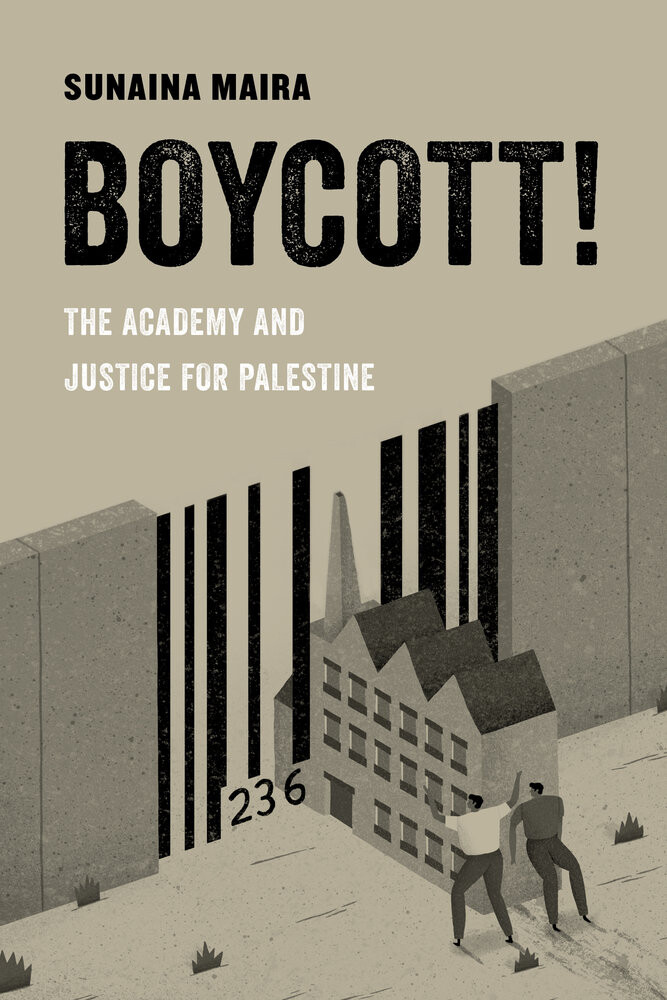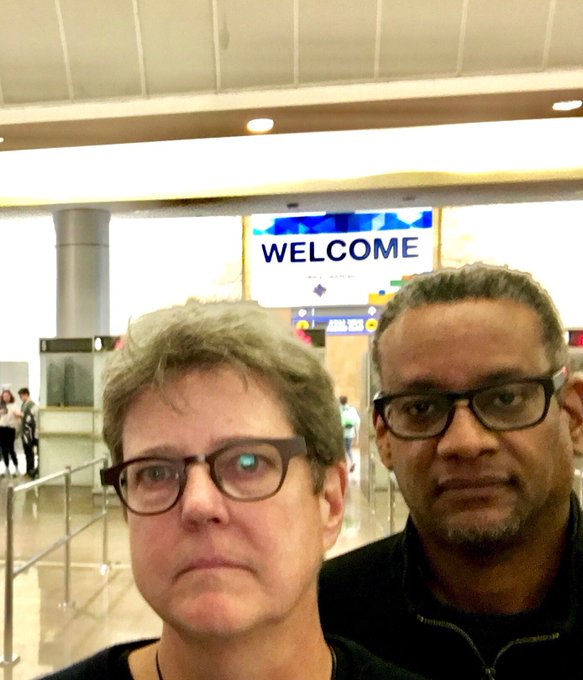A Brief Colonial History Of Ceylon(SriLanka)
Sri Lanka: One Island Two Nations
A Brief Colonial History Of Ceylon(SriLanka)
Sri Lanka: One Island Two Nations
(Full Story)
Search This Blog
Back to 500BC.
==========================
Thiranjala Weerasinghe sj.- One Island Two Nations
?????????????????????????????????????????????????Saturday, May 5, 2018
Listen: Israel scans troll websites to decide who can enter
Nora Barrows-Friedman-3 May 2018
On this episode of The Electronic Intifada Podcast: Israel denies
entry to the executive director and board chair of the Center for
Constitutional Rights, using false information from Zionist blacklisting
websites; author Sunaina Maira explains why the academic boycott is
growing in popularity across US universities despite lawfare campaigns
aimed at silencing scholars.
Israel continues to racially profile, detain, interrogate, deny entry to and deport people of Palestinian ancestry, Arabs and Muslims, Jewish activists, students, human rights advocates, United Nations officials and supportersof the boycott, divestment and sanctions (BDS) campaign.
Over the weekend, that denial of entry list was extended to Vincent Warren, the executive director of the Center for Constitutional Rights, and Katherine Franke, chair of CCR’s board and a professor of Law, Gender and Sexuality Studies at Columbia University
Don’t let the “Welcome” sign fool you. It doesn’t apply to #humanrights. Center for Constitutional Rights Executive Director and Board Chair Both Denied Entry into Israel https://buff.ly/2w7afMo
BREAKING: @VinceWarren and @ProfKFranke were detained for 14 hours, interrogated at Ben Gurion International Airport, then denied entry into Israel and deported. Israel fears "people who might challenge its policies” MORE: https://goo.gl/SEgjhk #JusticeDelegation
Warren and Franke were traveling as part of a fact-finding delegation to
witness the human rights situation in Palestine. The delegation brings
together mostly Black and Brown civil and human rights leaders working
on domestic US justice issues, according to CCR.
They were detained on 29 April for 14 hours at Ben Gurion airport, then denied entry and deported.
While Warren was led to a detention area and questioned, Franke’s
hour-long interrogation took “a very hostile turn,” she told The
Electronic Intifada Podcast.
The officer interrogating her accused her of trying to enter in order to
“promote BDS in Palestine,” Franke said. “Inside, I was sort of
chuckling, because you don’t promote BDS in Palestine, that’s not where
the work is done.”
The delegation had “nothing to do with BDS,” Franke said. We were coming
there to meet with people and witness the kinds of work they were doing
and the lives of Palestinians and the Arab minority within Israel.”
The officer then claimed Franke was lying, and accused her of being “a leader of the BDS movement.”
He then apparently held up his cell phone showing search results from
websites that compile blacklists and initiate trolling and harassment
campaigns against US professors and students who support Palestinian
rights: the shadowy group Canary Mission – a website linked to anti-Muslim demagogue Daniel Pipes that aims to tarnish the reputations of student activists and compromise their future professional careers – and the California-based Amcha Initiative.
Israel outsourcing monitoring to “lying troll” wesbites
“The point of the interrogation, from his perspective, was to get me to
admit that I was there as part of a boycott project,” Franke stated, and
to tie her to Jewish Voice for Peace.
In early January, Israel’s strategic affairs minister Gilad Erdan, who is in charge of efforts to thwart the BDS movement, announced a blacklist barring members of 20 human rights organizations from territory it controls.
It includes Palestine solidarity and BDS activist organizations across
Europe, in South America, South Africa and the United States, including
Jewish Voice for Peace and the Palestine-based BDS National Committee.
It was made clear, Franke said, that Israeli security officials at the
airport “have outsourced to these right-wing Zionist, unreliable, lying
troll websites the job of sorting who is a security risk and who isn’t.”
According to Franke, this monitoring of activists “says to me that these
political movements have actually been very successful, that the
Israeli government is that worried about JVP and about BDS, and it sends
a signal, in a way, that [Israel is] incredibly vulnerable.”
Warren says it is not certain that he and Franke were singled out
because of their work with CCR, which has a long history of advocacy on
behalf of Palestine rights supporters. “I think it’s clearer that we
were targeted because of the company we keep rather than the work that
we do,” he told The Electronic Intifada Podcast.
When he asked his interrogating officer to point to something on the
internet “that would justify under the Israeli laws of admission why I
shouldn’t be admitted as a tourist, he couldn’t do it at all,” Warren
recalled.
As Israeli agents detained, interrogated and then deported Warren and Franke on Sunday, Israeli occupation forces killed three Palestinians in Gaza, including a child, in two separate incidents.
Challenging the climate of fear in US academia
In higher education, academics are fighting against institutional
pressure “to refrain from any criticism of the Israeli state,” scholar
and author Sunaina Maira told The Electronic Intifada Podcast.
Maira, a professor of Asian American Studies at the University of
California, Davis, is part of the organizing collective of the US Campaign for the Academic and Cultural Boycott of Israel (USACBI).

In her new book, Boycott! The Academy and Justice for Palestine,
Maira documents the history and trajectory of the academic boycott that
was called for by Palestinian civil society as part of the larger
boycott, divestment and sanctions campaign.
Maira says that the academic boycott is a tool that educators and
students are using to challenge the climate of silencing and fear of
criticism of Israel that is rampant in US universities.
“The academic boycott in particular is very powerful because I think the
movement emerged when academics were beginning to get slightly fed up
with this censorship,” she told The Electronic Intifada Podcast. It also
allowed academic associations “to take a position.”
When the American Studies Association endorsed an academic boycott in 2013,
Maira said, “it became clear that critical scholars were actually
deeply concerned about Palestine – it really shattered the taboo on
criticism of Israel by creating a space for discussion.”
Following the passage of the ASA boycott resolution, Israel lobby groups launched a smear campaign against the association.
Israel-supporting current and former members of the ASA then filed a lawsuit supported
by Israel lobby groups in 2016, accusing USACBI members of secretly
conspiring “to take over the association for the purposes of a boycott,”
Maira explained.
She was named as a defendant in the suit over her public endorsement of the resolution.
“On the contrary, it was one of the most public, grassroots campaigns
that had ever taken place in the ASA in recent history,” Maira said.
The threats have continued, with an Israel lobby group filing an expansion to the lawsuit last December, adding Steven Salaita and three other professors to the list of defendants.
Defense lawyers say the real target of the lawsuit is USACBI, and the BDS movement more generally.
Because the Zionists lost in the very public, democratic vote in support
of a boycott, their response has been to pour immense resources into
lawfare campaigns “to harass and intimidate and defame scholars who dare
to organize” around BDS, Maira stated.
According to Maira, “the lawsuit was designed to silence other academic
associations” and to send the message that if they dare follow the ASA’s
example, those associations would face the same legal wrath.
Listen to the interviews with Sunaina Maira, and Katherine Franke and Vince Warren, via the media player above.
Music: “People Not Places” by Invincible featuring Abeer and Suhell Nafar (DAM)
Theme music and production assistance by Sharif Zakout



